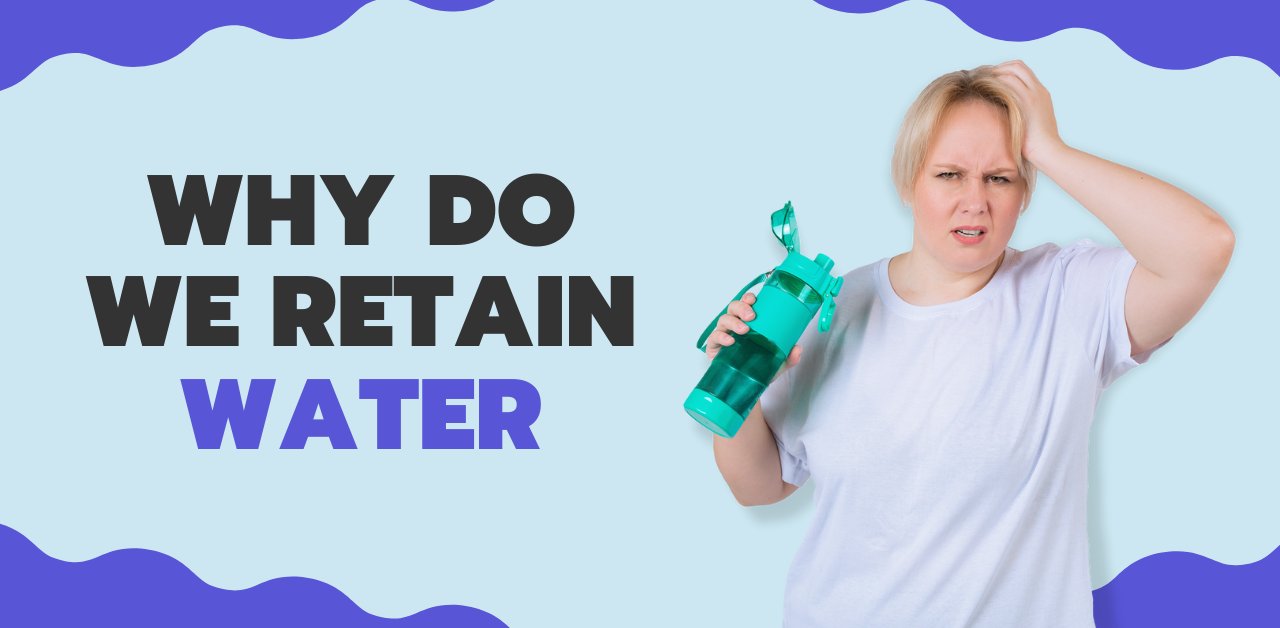YOU’RE NOT HYDRATING ENOUGHÂ
Drinking water is key to maintaining fluid balance. During times of dehydration, our body adapts by releasing an antidiuretic hormone.Â
This makes your body intentionally retain whatever fluid you do have to maintain homeostasis or have a state of proper fluid balance. Water enters and leaves the body at a regular rate.Â
A 2013 study published by the Journal of Strength and Conditioning Research showed that even being in a mildly dehydrated state can impact your fluid balance enough to cause retention. PMID: 22692114Â
Skipping on drinking water can cause water retention and temporary weight gain.
ALCOHOL CONSUMPTION
A 2018 study by the World Journal of Nephrology analysed fluid balance and found alcohol was shown to contribute to loss of fluids and cause feelings of bloating and swelling.Â
PMID: 29359117
A major contributor to this is that alcohol has a dehydrating effect on the body, which causes you to hold onto whatever fluid you can get your hands on. When the body is dehydrated, skin and vital organs try to hold onto as much water as possible, leading to puffiness in the face and elsewhere.
A 2013 systematic review conducted by the Foundation for Alcohol Research and Education (FARE) on alcohol and obesity found that:
- Where there is a positive association between alcohol and body weight, it is more likely to be found in men than in women.
- When considering beer, where there is a positive association, it is more likely for abdominal obesity (abdominal fat around the stomach) than for general obesity for men and women.
SALT INTAKE
In a 2017 study by the Journal of Clinical Investigation study, groups of healthy men ate diets controlled for three salt intake levels. As the men increased their salt intake, they drank more water and held onto more fluid throughout their bodies. PMID: 28414302
Frequently eating out or buying processed foods could also lead to water retention since these meals consist of high salt, making them tasty. PMID: 21191142
Eating a lot of salt causes your body to conserve water. PMID: 28414302
A 2017 study found that high salt intakes increase thirst. Your body uses the extra fluid consumed to dilute the excess sodium that it’s unable to excrete quickly enough.Â
However, your urine volume does not change, meaning this extra fluid stays in your body. Thus, a sudden increase in sodium intake may cause you to gain some weight in the form of fluid. PMID: 28614828
HORMONAL CHANGES
For women, hormones are one of the common reasons behind water retention. Hormonal changes throughout menstrual cycles to those during pregnancy can increase the risk of the body holding on to water.Â
In addition, the hormone fluctuations that occur during menopause are often associated with weight gain and a slowing down of the digestive system, which all contribute to abdominal bloating. PMID: 24492487
A 2013 study published in Sports Medicine investigated athletes at different points in the menstrual cycle and while on hormonal contraceptives. PMID: 8303141
The results showed that an increase in progesterone and estradiol levels ring the luteal phase is linked to fluid retention. Women may naturally be more likely to retain water during the phase of their cycle when their ovaries release an egg, right before the onset of their period.Â
CARBOHYDRATE CONSUMPTION
Carbohydrates, or carbs, also cause the body to store extra water. When we eat carbs, the energy we do not use right away is stored as glycogen molecules. Each gram (g) of glycogen comes with 3 g of water.
However, avoiding or cutting down too much on carbs isn’t recommended since it’s our body’s primary energy source.
According to the Institute of Medicine’s Food and Nutrition Board, adults need at least 130 g of carbohydrates to function each day. And according to the Mayo Clinic, 45-65 % of your daily calories should come from carbohydrates, which equals about 225-325 grams of carbs if you eat 2,000 calories a day.






